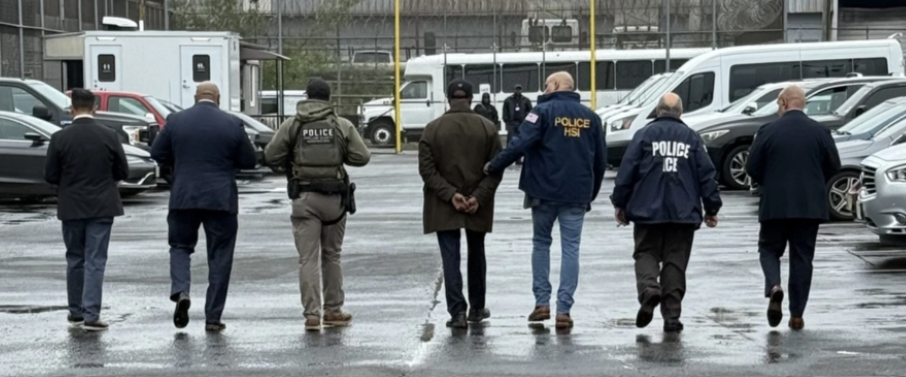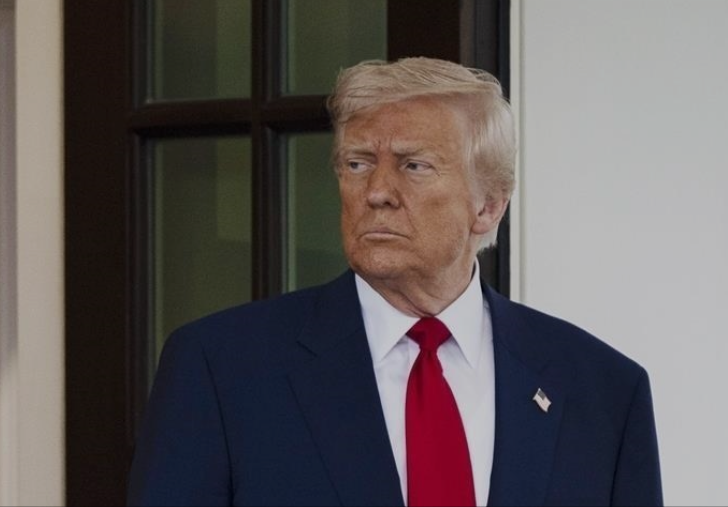In a dramatic and politically charged development, Newark Mayor Ras Baraka was arrested this week while performing his official duties at a privately run ICE detention facility in Newark. The arrest has sparked national outrage, with critics accusing the Trump-aligned Department of Justice of weaponizing federal law enforcement to intimidate public officials who challenge the administration’s hardline immigration agenda.
According to Baraka and multiple eyewitness accounts, the mayor was lawfully present to serve fire code violation notices issued by the City of Newark. His arrest—carried out by federal agents outside the facility on public property—raises serious constitutional, legal, and ethical questions about prosecutorial overreach, political retaliation, and the integrity of the justice system under the Trump regime.
What Happened: A Timeline of Facts and Tensions
Mayor Baraka first attempted to serve the citations a day earlier, leading to what local news outlets described as a “tense standoff” with facility staff and federal agents. Undeterred, he returned the next day, accompanied by three Democratic members of Congress who were exercising their legal oversight authority.
Baraka entered the facility’s outer area—a non-restricted zone—with the congressional delegation. At some point, he was asked to leave. He complied, exiting to a public space outside the facility. Despite this, masked agents from the Department of Homeland Security left the building and arrested Baraka in full view of protesters, sparking chaos and confrontation on public grounds.
This sequence of events, confirmed by video and independent reporting, significantly weakens the government’s trespassing case. Prosecutors claim Baraka was repeatedly warned to leave and refused. But if he was already off the property when detained, the legal foundation for the arrest collapses under scrutiny.
Legal Red Flags: Prosecution on Shaky Ground
Baraka’s defense—that he was performing official mayoral duties—is not only credible but legally significant. As the city’s chief executive, he is empowered to enforce municipal codes. His presence on the premises to deliver fire code violations was arguably within his jurisdiction.
Furthermore, the property in question is not a federal installation but a privately owned facility contracted by the federal government. This distinction matters. The authority of DHS agents to expel or arrest a mayor enforcing local law on non-federal property is legally murky, and likely to be challenged in court.
Compounding the legal issues is a potential violation of Department of Justice rules by U.S. Attorney Alina Habba, a former personal attorney to Donald Trump. Shortly after the arrest, Habba tweeted: “Ras Baraka committed trespass,” asserting guilt before trial—an egregious breach of DOJ guidelines prohibiting public statements that could prejudice judicial proceedings.
This statement alone could justify dismissal of the case. DOJ Manual section 1–7.610 explicitly forbids federal prosecutors from expressing personal opinions about a defendant’s guilt. Habba not only violated this rule, she then doubled down by publicly arguing the facts of the case—further undermining the department’s credibility and impartiality.
The Bigger Picture: A Pattern of Political Prosecutions
Baraka’s arrest is not an isolated incident. It fits a broader pattern of political prosecutions under Trump’s Department of Justice, reminiscent of the controversial arrest of Wisconsin Judge Hannah Dugan earlier this year. In both cases, the DOJ appears to be targeting public officials who represent resistance to Trumpism—an alarming trend for any democracy.
Defense attorneys for Baraka will likely argue that this arrest, combined with the prosecutorial misconduct exhibited by Habba, is part of an ongoing abuse of federal power. They may also file a motion to dismiss based on prejudicial public comments and questionable legal grounding.
If the case is thrown out—as it very well could be—MAGA loyalists will inevitably decry it as a political decision by a so-called “liberal judge.” What they will ignore, however, is the DOJ’s blatant disregard for its own ethical standards and the dangerous precedent this type of prosecution sets.
Conclusion: Baraka’s Case Is a Constitutional Stress Test
Mayor Ras Baraka’s arrest is more than just a legal skirmish; it’s a constitutional stress test in an era of politicized justice. The merits of the case appear weak, the process is tainted by prosecutorial misconduct, and the optics are damning. If justice prevails, the case should be dismissed—not because Baraka is above the law, but because this prosecution is beneath it.



